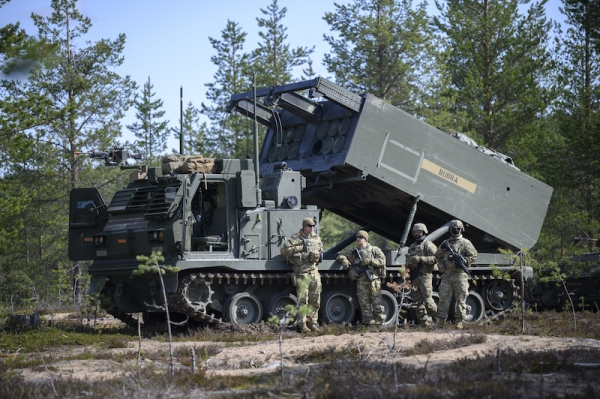
Photo: Lauri Nieminen / Str / Lehtikuva
- Next Article Student housing support falls to zero in August
Finnish military officers made a strong impression during the recent NATO Joint Resolve exercise in Estonia, where over 260 officers from 20 countries trained in leading joint operations under simulated crisis conditions.
Captain Lauri Nieminen, representing the Finnish Defence Forces, commanded a 60-person international unit in a scenario replicating threats on NATO’s eastern flank. The exercise took place at the Baltic Defence College in Tartu and ran for three weeks.
“Despite different backgrounds, we operate using NATO’s shared manuals. That ensures everyone speaks the same operational language,” Nieminen said.
Although Finnish military ranks are generally lower compared to other nations in joint drills, Nieminen noted that competence outweighs titles. “We focus on solutions. There’s no hesitation, just forward motion, even when we don’t have all the facts. That’s something our allies value.”
One trait that stands out is Finland’s deep-leadership model, built on mutual respect rather than strict command. “It surprised many. People said our style worked unusually well, especially under pressure,” Nieminen said.
NATO instructors noticed. Retired Norwegian Rear Admiral Hans Helseth, one of the exercise’s senior mentors, described the Finnish officers as “open, bold and intelligent.”
“From the start, they made a big impression,” Helseth said.
The drill took place against a backdrop of increased defence cooperation among Finland, the Baltic states, and Poland—countries seen as the core of NATO’s eastern frontier. “We share borders, values and threat perceptions,” said Brigadier General Alvydas Šiuparis, commander of the Baltic Defence College.
The region’s strategic relevance was echoed by Polish Colonel Dariusz Majchrzak, who stated: “These nations are NATO’s frontline. Their national resilience strengthens the whole alliance.”
Ukrainian officers also took part in the exercise. Their presence, shaped by combat experience, brought realism to the training. “They had every reason to be bitter, but instead they came to learn and lifted everyone’s spirit,” Nieminen said. Conversations with them made a lasting impact.
Helseth said Ukraine’s participation was a reminder of the stakes: “If we don’t win this war together with Ukraine, the Russians will come here next.”
According to Majchrzak, helping Ukraine is not just solidarity, but strategy. “If Kyiv is safe, so are Warsaw and Helsinki.”
From Finland’s perspective, participating in NATO’s command exercises is essential. Deputy Rector of the National Defence University, Pasi Hirvonen, said the experience prepares Finnish officers for real-world leadership roles within NATO structures.
“These exercises build operational skills and trust between countries. That trust is critical for Baltic Sea security,” Hirvonen said.
He also warned that Russia’s military threat will not disappear with the end of the war in Ukraine. “Russia has adopted a wartime economy, and that momentum is not easy to reverse. Their rearmament continues, and we’re seeing increased military infrastructure just across our border.”
Next year, Finland will host the Joint Resolve exercise.
For Nieminen, the outcome of the exercise wasn’t just in the reports filed, but in the recognition received, sometimes marked by a quiet handoff of a coin during a handshake. “It’s a sign of trust and shared experience,” he said.
HT
- Next Article Student housing support falls to zero in August
Source: www.helsinkitimes.fi
